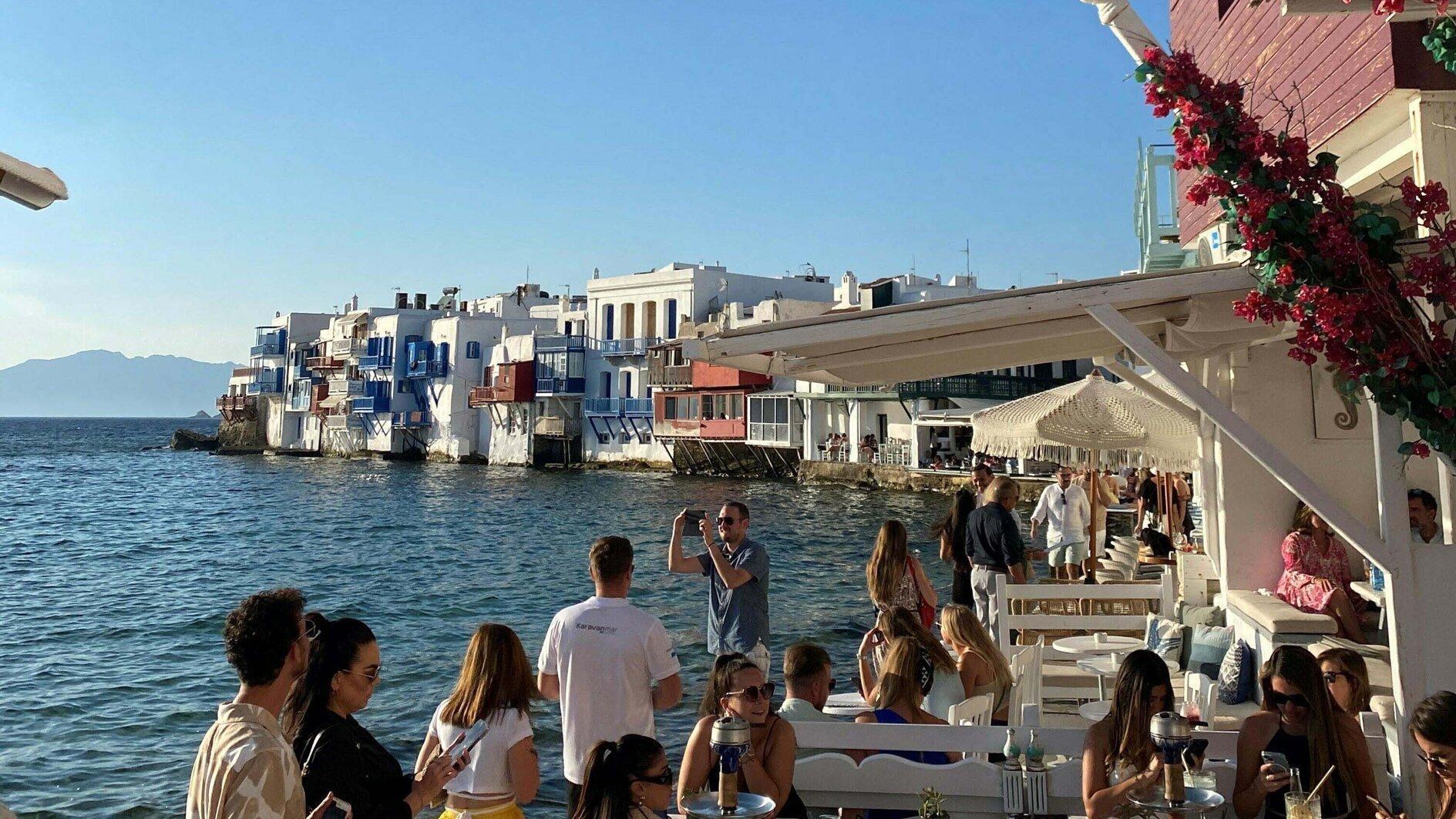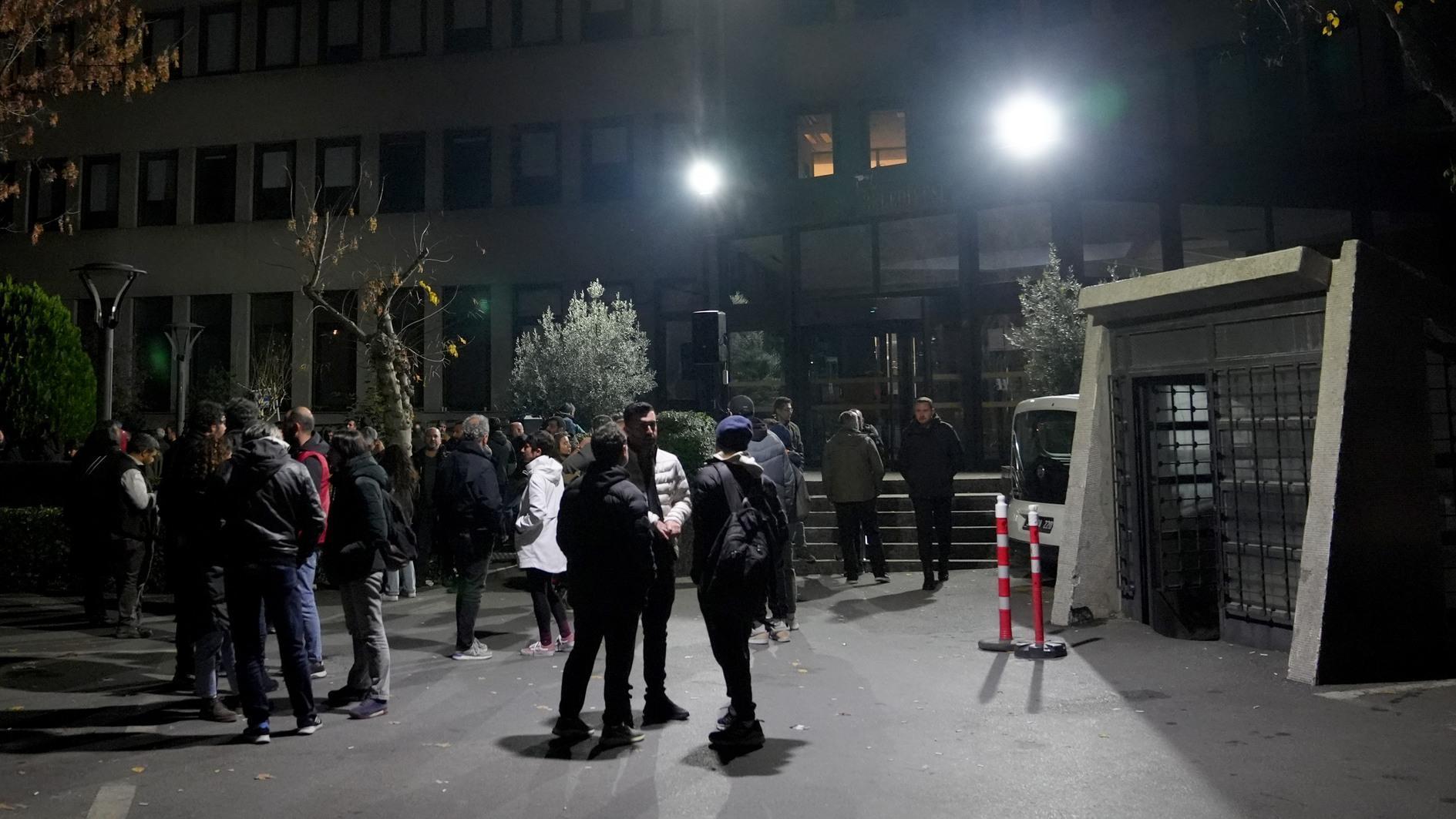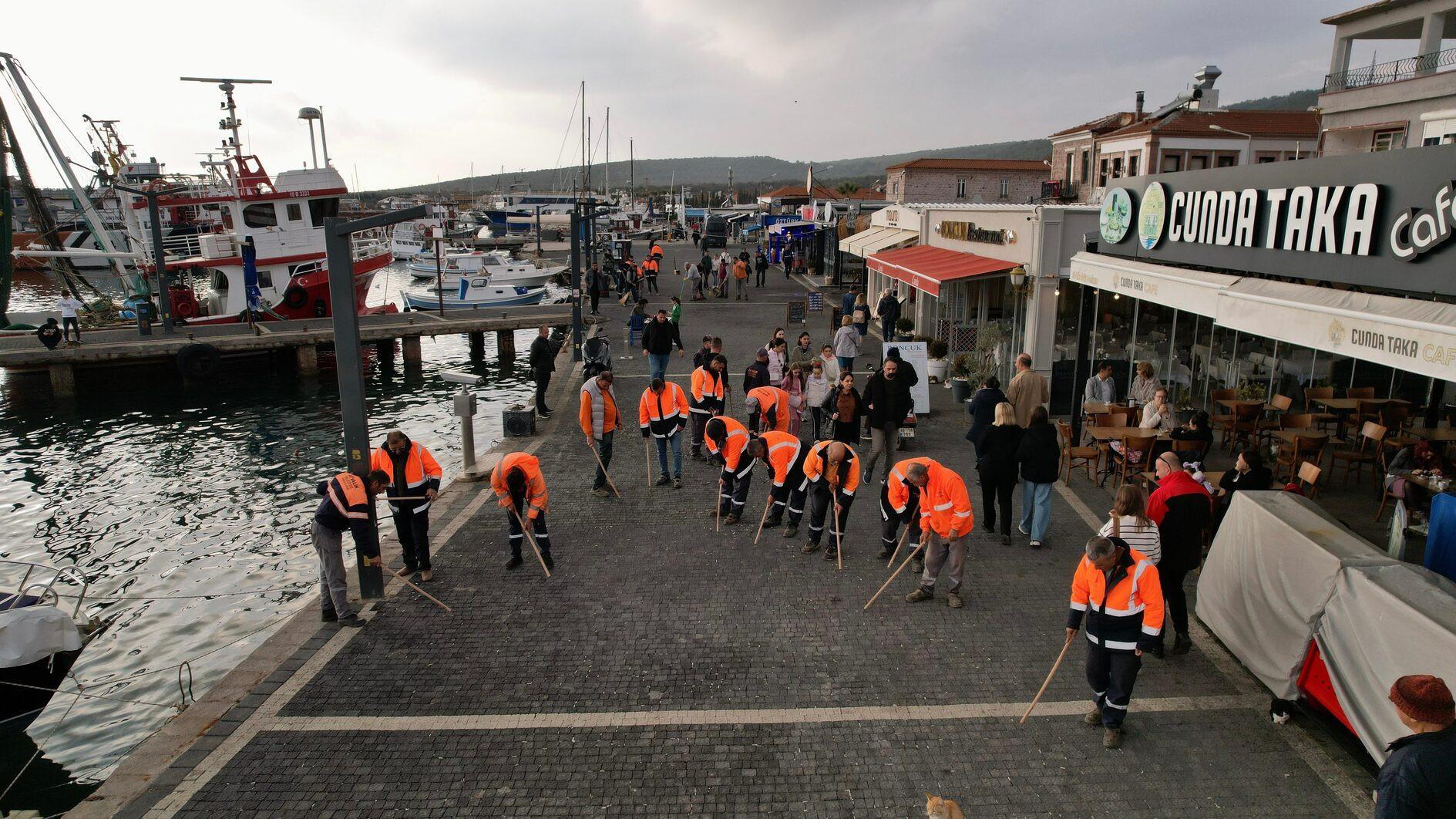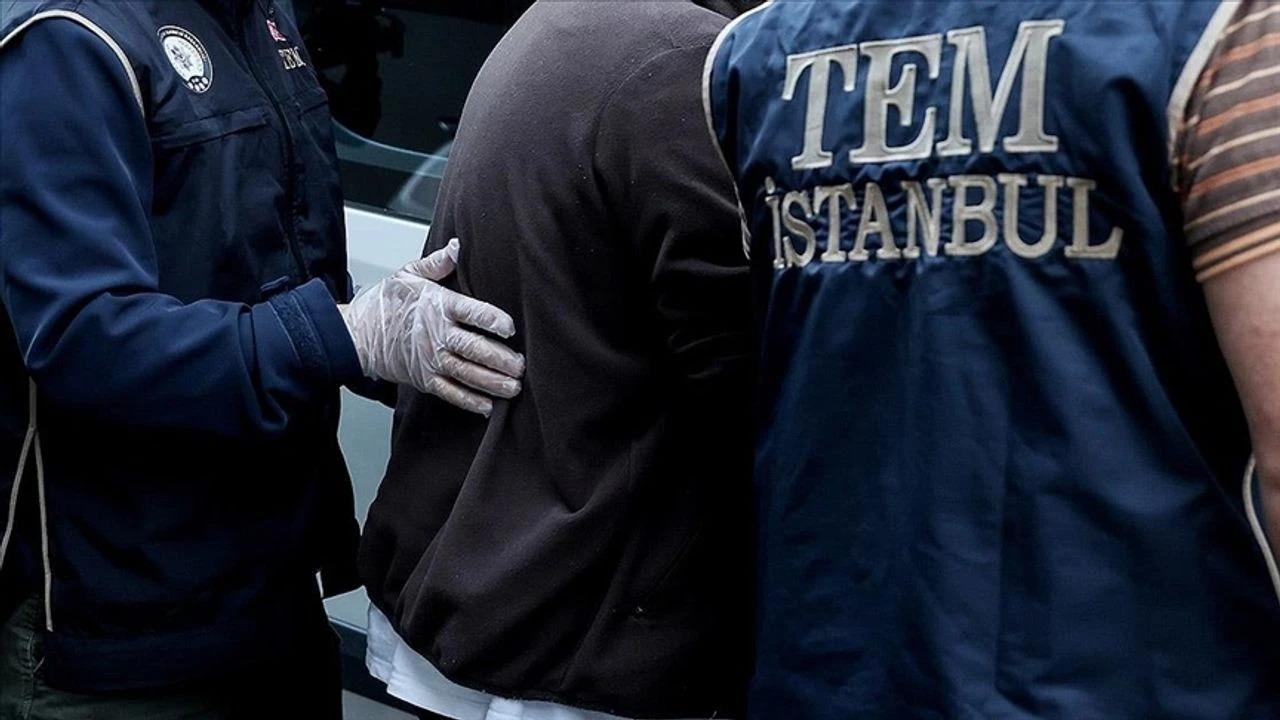Dig sheds light on devotional life on Giresun Island
GİRESUN – Anadolu Agency
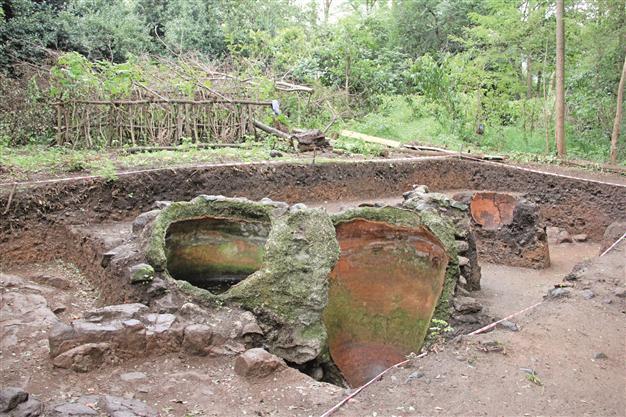
AA Photos
Archaeologists working on one of Turkey’s few Black Sea islands, Giresun Island, have found evidence suggesting that religion was paramount on the piece of land, which lies 1.2 kilometers off the Turkish coast.The religious structures unearthed during the excavations show that devotional life was prominent on the island, with officials believing that the children’s graves belonged to the children of religious men who gave lessons on the island.
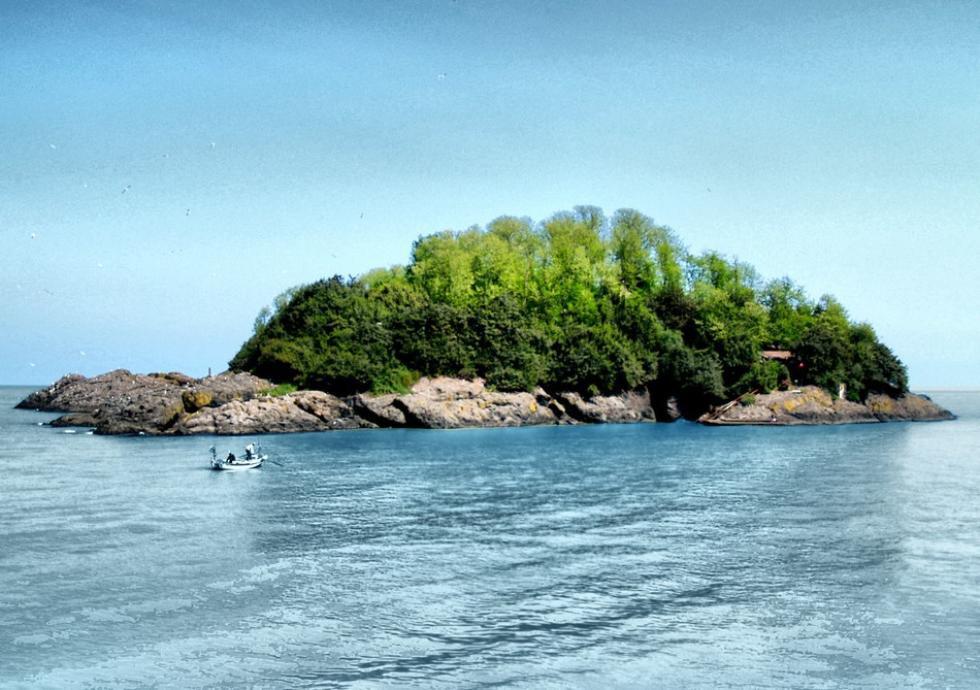 The skeletons of children were generally found with bronze beads on their neck, said the scientific adviser to the excavations, Celal Bayar University History of Arts Department Professor Gazanfer İltan.
The skeletons of children were generally found with bronze beads on their neck, said the scientific adviser to the excavations, Celal Bayar University History of Arts Department Professor Gazanfer İltan. “There is a bronze coin on the toes of skeletons in some graves. The graves are surrounded with stones. The children were buried en masse in these graves. We believe that they were the children of religious men living on the island. The island was planned as a monastery complex. The life was completely religious there,” he said.
In addition to the children’s graves, the month-long excavations this year also unearthed a chapel, as well as large containers, known as pithos and which were used to keep foods.
“The surrounding of the chapel is in the shape of a graveyard. The graves generally belong to children. The graves found during the previous church excavations were of adults but it is interesting that half of the graves around the chapel are children’s graves,” İltan said.
“There are bronze beads in some of the [graves]. We found lots of Byzantine coins around the chapel, especially around the area of the pithos, but they have oxidized and become deformed,” he added.

İltar also discussed some of the findings from the graves. “The classical burial method of the Byzantine era is the same here. The burial tradition was also applied in the children’s graves, just like in the graves for adults.
We have 10 children’s graves [for children] between the ages of six months and 12 years of age,” İltar said.
The professor said the main outer walls of the chapel were covered with stones brought from Istanbul.
“Brick lentos and jambs were used in some places. We found architectural pieces like this. In the other area, we found a total of seven pithos. We did not complete the excavations but will continue to unearth them next year. We believe the number of pithos will increase.”



